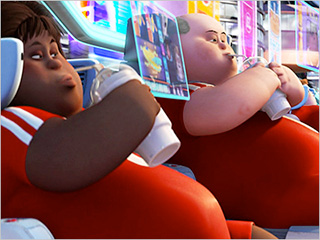"The conventional wisdom of the Tower of Babel story is that the collapse was a misfortune... the weight of many languages that precipitated the tower's failed architecture. That one monolithic language would have expedited the building and heaven would have been reached. Whose heaven, she wonders? And what kind? Perhaps the achievement of Paradise was premature, a little hasty if no one could take the time to understand other languages... Complicated, demanding, yes, but a view of heaven as life; not heaven as post-life."
 |
| Whose heaven, she wonders? |
Wow!
We do need to take time to understand each others' perspectives. As scientists we need to understand public opinons and make our science more accessible to them! Or, as this study on public understanding of our nanotechnology revolution laments- the gap, between scientific community and public that uses this science, will keep on growing.
Our Tower of Babel:
Our civilization is undergoing technological revolutions. One of the very well studied revolution - the industrial revolution gave us, among many other things- lots of wicked problems. Our solutions of today become problems for tomorrow.
Given this grim situation, public reaction and (mis-)understanding of science have served as both a huge impetus and rate limiting step in advancement of science. In most of the cases we can trace back the poor communication on behalf of scientists and very effective communication on behalf of pseudo-scientists as the cause behind public misunderstanding of science. (More on scientific blogging here.)
Few examples where lack of effective communication between scientists and public are leading to undesirable consequences:
a) Genetically Modified (GM) Foods- There are few incidences of GM foods that are indeed harmful for health and or environment. And, these few lone incidences have led to such a huge scare for GM foods that even the GM foods that are healthy and economically + ecologically feasible and could have done wonders for humanity were removed from market. Some countries went as far as to even ban any kind of GM foods and seeds.
b) Anti-biotic Resistance (ABR): Here, science has failed to create enough scare. Create scare!? Wow! That is quite an evil intention! But we do need it! Given the rate at which we continue using antibiotic laden soaps, cleaners, creams, some of which might very well be cancer-causing, is alarming! We need people to stop using Triclosan laden soaps etc. We need to stop overusing antibiotics!
c) Stem Cell Research: Millions of lives can still be saved and many more can be made better if we encourage stem cell research. As scientists we have failed to convey how stem cell research can actually be not anti-life.
Our current challenge is to communicate scientific advancements with everyone effectively and avoid the failure of our civilization's attempts in making tower of babel for reaching heaven.
This should start from our schools. We should learn to be better teachers. Here is a wonderful example:
Personal Challenge:
Learning from the resources for our PFP class (thanks!) I am inspired to take up this personal challenge-I will blog about research in our lab in as simple and creative way as possible and request my colleagues, (who are expert in our field) to read it and rate it on scientific accuracy. Now here is the tricky part- I will meanwhile encourage my colleagues and friends from other fields (including my colleagues in the PFP and GEDI classes) to read it too and rate it on how interesting it was and how much they believe that they understood.
It is an exercise that might just 'change my life' as Dr. G put it in our GEDI guest lecture class. Wait for it, dear readers, my second blog on my research is coming!















.jpg)

